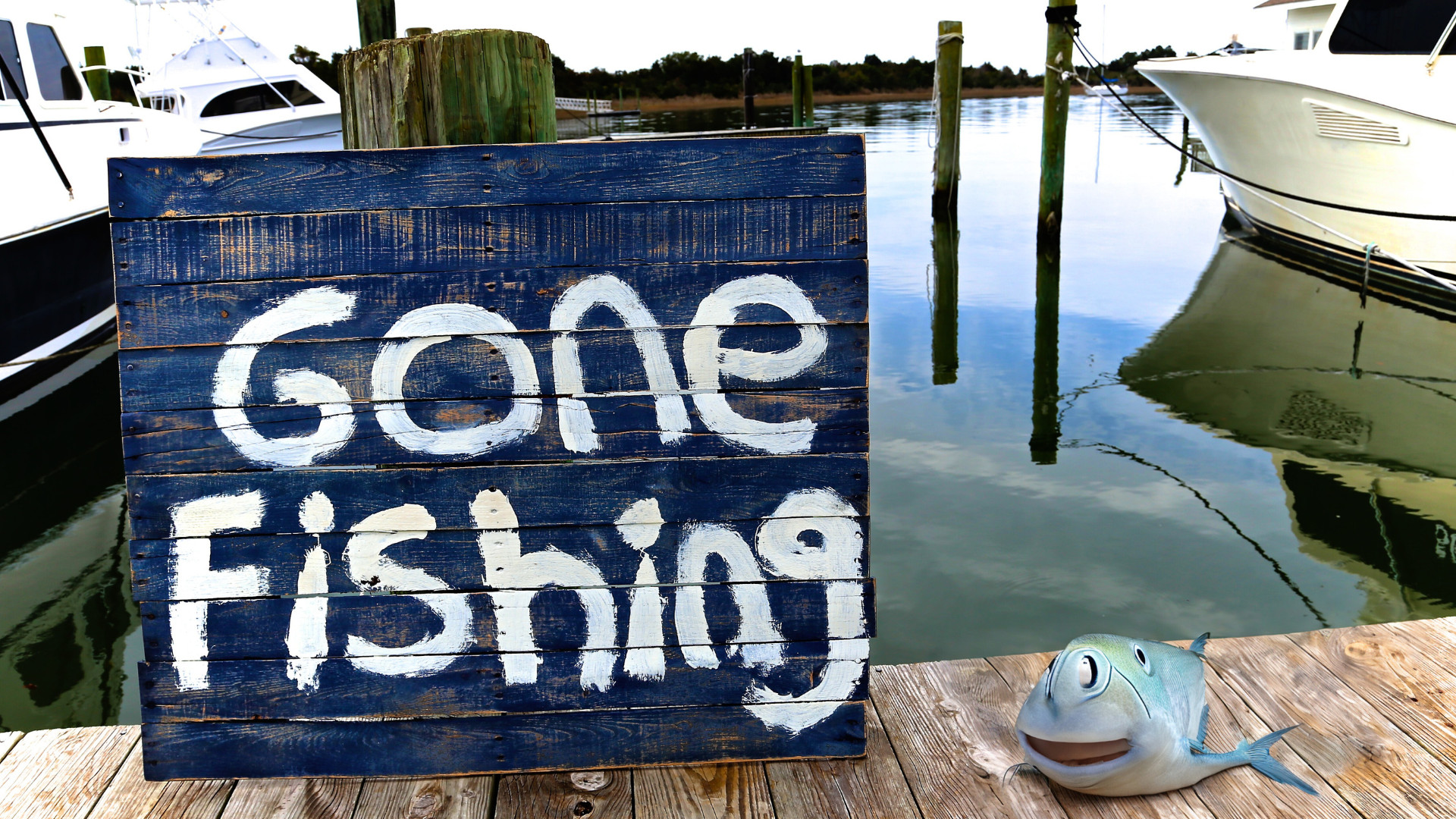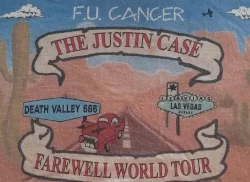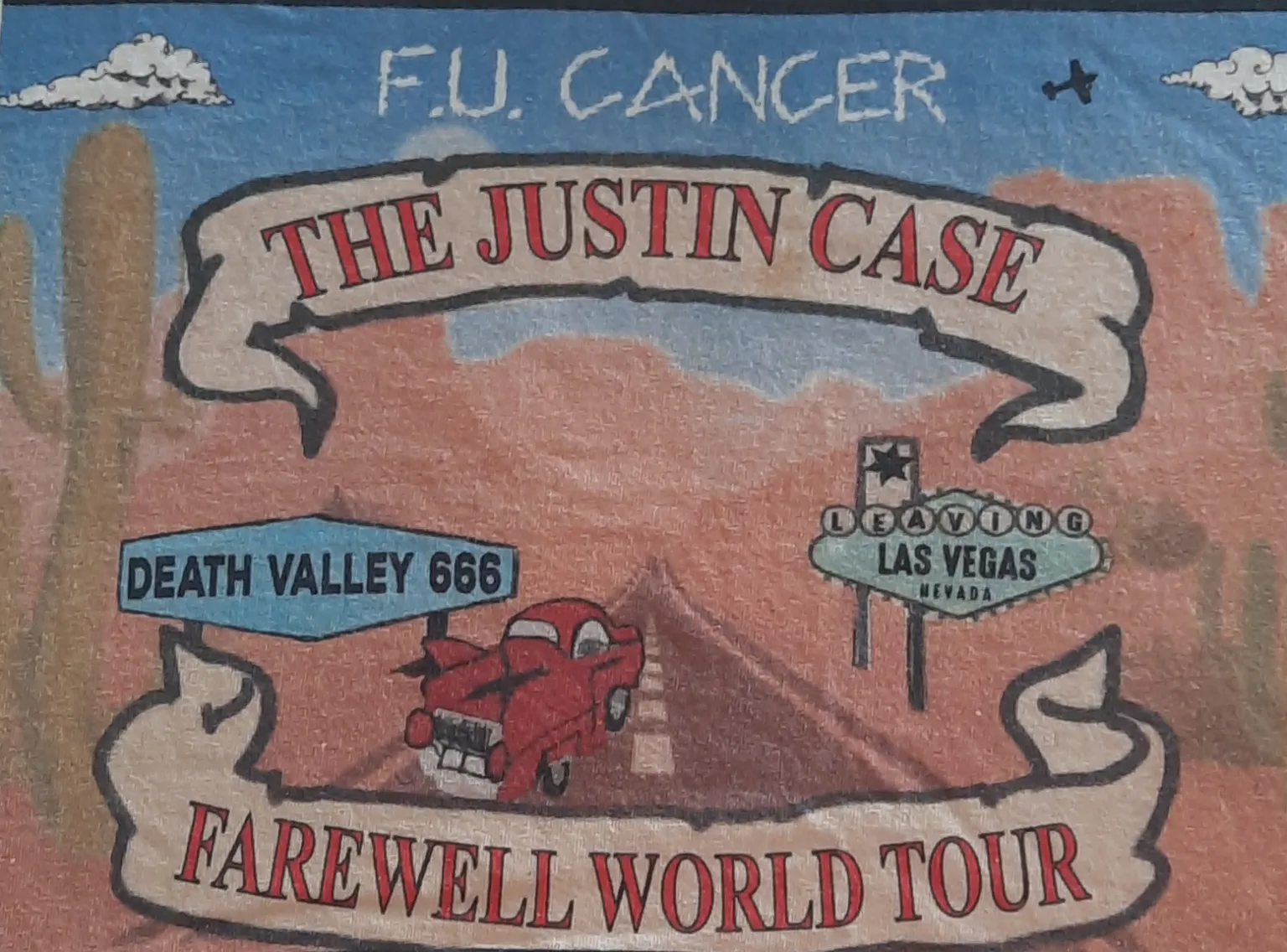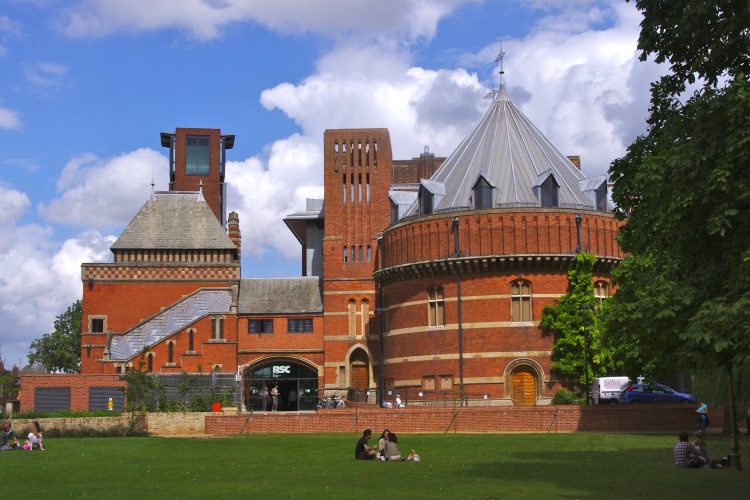
The following day I was going to Wembley Stadium, the spiritual home of English football and debatably the whole world of football. But Wembley was too far to travel, so I had decided that I would end day two with a little trip down Memory Lane and a diversion through Cheddar Gorge. My granddad would always drive us through Cheddar Gorge on the way down to the Brean Caravan Park each year. Each year if we had been good, we would stop and get an ice-cream at the cafe at the bottom of the Gorge. My little sister would then be sick at least once before we got to the caravan park. The following year she would use the first two hours of the journey stating in every sentence that she wasn’t car sick anymore; only to prove herself a liar usually 20 miles past Cheddar Gorge Cafe. My granddad was a fan of big cars and he drove something that looked to my 10-year-old self like a hearse. I’m not really sure but I think it was a Ford Zodiac station wagon with enough space for seven people. I loved his car as it had loads of space. I particularly I loved lying on the floor under the back seat. From here I could watch granddad’s feet working the pedals that moved the car. I could hear the gearbox shrilly screaming when granddad was going downhill and groaning like a pregnant cow when it went up the hill. I even liked the smell of the carpets and usually shared my hiding space with a couple of dogs. I learnt to listen to the car and could anticipate just when granddad would go up or down a gear. I loved a road trip even then. That was until my sister deposited half a pint of strawberry ice-cream just inches from me and sometimes even on me. Granddad would pull over threatening to turn us around and go home again. Mum would be dabbing feebly at the pool of sick and we kids would plead with granddad to not rob us of two weeks in paradise. While the dogs would hoover up the second-hand strawberry ice-cream. Granddad never did turn around and every year we would follow the same pattern. Long drive through various towns. Cheddar Gorge and my sister’s disgorge. Arrive late at the caravan park. Watch the oldies all traipse off wearily to the local pub, leaving us to our quest to find new best friends while smelling of regurgitated Cheddar Gorge ice-cream.
The gorge itself is still wonderful. In the 70s it was considered one of the seven wonders of Great Britain, so there were lots more tourists back then. Cheap flights mean that these days all the real wonders of the world are now accessible for less than the price of the petrol to get you to Cheddar Gorge. And that has affected the numbers somewhat. I suppose when you can fly to the Grand Canyon and spend days in the sun wowing over one of the world’s real seven wonders, the rain at Cheddar Gorge loses its appeal. When I visited, the sun was out and Britain was in the middle of the best summer for 40 years. There were lots of people milling around the gift shops and vying for souvenir spoons and tea towels. I bought a couple of boxes of chocolate raisins claiming to be genuine cheddar gorge goat shit and the taste nearly convinced me of their authenticity. The cafe was exactly the same and the same ice-cream counter was packed with people eager to provide their eager kids with cases of travel sickness. I waited my turn and passed over the mango gelato (one of the few changes), in favour of my sister’s favorite strawberry ice-cream. I made my way outside and sat on the corner of a long bench seat along with other tourists. It seemed from general consensus that everyone was still just passing through, either to holidays to the south or on their way home north. I was an oddity. When I mentioned I was on my bucket list tour and had originally lived in Solihull, they all looked at me like I was an alien. I explained Cancer Survivor’s Guilt and the Justin Case Tour birth and quickly learned the majority of the table save one 13-year-old rebel thought I was crazy. One by one, the table warned me about beggars, gypsies, murderers, poor roads and various routes so as to avoid the Midlands’ spaghetti junction intersection. English people are still crazy about traffic and all revel in personal tales of tail backs proudly boasting about the longest queue each respective motorist had been in. Then to top It off, the table started to argue about which of the various nationalities of immigrants were the most dangerous. I stood up with the remnants of my ice-cream and begged my leave explaining that I wanted to make Blagdon Lake by sunset. I was told that was impossible. Only to be offered six possible routes and the information from one particularly glum sole that the drought had dried the lake up and it was just a dry hole in the ground now. I asked him if he had seen it and he replied no but had read about it in The Sun. For those of you unaware of the English institution that is The Sun, let me just say dirty paparazzi rumour-mongering, phone-tapping crap.
I made my own way, totally ignoring the doomsayers’ warnings of road works and rock falls to Blagdon Lake. I arrived earlier than expected but just in time to catch the lake before the sun went down. I was glad to see that my friend “The Sun reader” was wrong and the lake was still very much there. He blamed the drought! I am loathe to call a good summer a drought but in England this is what happens. Two inches of snow is a Siberian blizzard and two weeks without rain a drought. We have some very strange ideas about what constitutes weather in England. In Britain we have remarkably stable but generally poor weather. I remember as a six-year-old hanging out desperately for my turn to be weekly weather monitor. The weather monitor’s job was to get the weather forecast from the teacher’s table and then take the cardboard weather symbol that replicated that day’s weather and stick it pride of place on the wall beside the blackboard. When my week finally came, I ran to school that morning and grabbed the weather forecast – it was ‘Dull’. I walked past the bright ‘Sunny’ yellow sun symbol and past the symbol with the big white cumulus cloud that had ‘Fair’ written on it. To the symbol that was grey and grubby cloud with ‘Dull’ written on it. I felt robbed but thought, well, there is always tomorrow. Tuesday was ‘Dull’, Wednesday was ‘Dull’; Yes, you got it; for all five days of my weather monitor week the weather was dull. After slapping my ‘Dull’ sign onto the wall on Friday morning, I broke down in tears. It wasn’t fair; in fact, it wasn’t ‘Fair’ or ‘Sunny’ once. I felt robbed and my chest heaved with guttural sobs. My teacher decided sympathetically that I could do another week, and let me go again the following week. Yes, you guessed it. Another five days of ‘Dull’. As Dull usually meant rainy, my classmates were by this time beginning to believe I was some sort of rain dance shaman. My teacher was keen to send me to Ethiopia where they badly needed rain. Our playground by this time was only being used by two dozen happily quacking ducks. I stepped down after day 10 of Dull and decided I didn’t want to do this anymore. On the next Monday morning I came to school, and there on the weather board big and bright was the big yellow sun sign almost screaming at me “Sunny”. At break, I stood at the edge of the playground sulking and surrounded by a dozen slightly distraught and lost ducks.
Anyway, I got to Blagdon Lake and the drought hadn’t dried it out; very much to my relief. Blagdon Lake holds a very fond place in my memory. It was the first trout lake I fished without my two best friends. I only knew it was there because of meeting a girl at a concert. This is a little convoluted story but hopefully worth the ink.
As I have said previously, I have always been driven by the desire to make money. Not lots of money, just enough so I don’t have to hide from debt collectors. I used to hate the Friday nights as a child, hiding behind our couch while some big burly debt collector shouted through the letterbox that he could see us. I determined that as a teenager and far beyond to never waste an opportunity to make some money. I was helping the milkman deliver milk when I was 18 as a weekend job. I was saving to go to Guildford Civic Hall to see a concert by the band The Jam. I mentioned the Jam concert to Hughie the Milkman and he introduced me to a friend of his. Someone who would markedly change my fortunes from that day forward. In those days everybody knew someone who could lay their hands on something that had, supposedly, fell off the back of a lorry. There was so much stuff falling off the back of lorries in those days that I am surprised that anything ever reached a loading dock. David Weatherspoon was my back of the truck man. Dave specialised in souvenirs, toys, tee shirts and scarves. Dave had access to many things but he could get scarves incredibly cheaply. He told me he had 100 scarves with The Jam printed on one side and the title of the current single “I’m Going Underground” on the reverse side. He said that he would let me have the hundred scarves for 10p each. I was unsure if this was a good deal until Dave said that I could “sell for each scarf for a pound” and to force home the deal almost as an after-thought he added the word “EASILY”. I quickly did the math; working out that at a pound each I could turn 10 pounds into 100 pounds. In the early 80s, the average weekly wage for 18-year-olds was just 33 pounds a week. So, I greedily offered Dave five pounds for all the scarves. I thought Dave would try to haggle with me to get his desired 10 pounds but he much too quickly said yes. That should have been my first red light. He showed me the scarf with The Jam written on one side and then showed me the cardboard box with the rest of the scarves in it, flipping through slowly so I could see that they all had The Jam printed on them. I was pleased with the deal and Dave was even more so. I learnt a valuable lesson that day that when buying anything, examine the goods properly. Even with five-pound scarf deals an extensive jurisprudence should always be undertaken. Tattooed inside my eyeballs is the Latin phrase Caveat Emptor; Buyer Beware.
I took my box of scarves and was delighted at the opportunity in front of me. To get to Guildford Civic Hall I had to get a bus and two trains. As soon as I got on board the bus, I quickly set about laying my wares out and started selling my scarves to fans who were mostly also travelling to the concert. To start with I put a two-pound price on my scarves. It was not until I was half way through the first train journey that the first angry customer returned. I saw from the expression of the angry customer’s face that I had a big problem. On the reverse side in the lyric “I’m Going Underground” the word underground was misspelled “undergrind”. At times of great stress, the most important thing to do is breathe deeply. Sigh and smile. Then go with your gut. I started with the gambit that the misspelling made them even more desirable; but this didn’t wash. Well not with the first complainant. Fortunately for me, not many people noticed the spelling error and only some of those came back to see me. Most of them were happy if I gave them the scarves at cost price, one pound!!
By the time I got to the concert venue I had 155 pounds and just six scarves left. I was by that time selling them at cost because of the spelling mistake. To me cost was a pound! First rule of retail, cost must include all costs. So, I added train fares, bus fares, concert ticket, food, beer, merchandise cost and added 100 per cent. I know that’s not strictly true, but my school of economics has many very rich graduates. You can have your doctorate in business and economics on nice paper in a nice frame from the London School of Economics and I will take my pieces of paper with pictures of dead explorers and the King or Queen on them. From midpoint of train two I was earnestly espousing to Jam fans that the spelling mistake meant that they were getting a unique piece Jam memorabilia. Like record covers with spelling mistakes, these scarves were more rare and consequently would be more valuable. If they didn’t want a very special scarf then I would sell it to someone else and they would one day forever kick themselves. I had found another talent. It was a talent first realised many years previously at Wimbledon and I will tell you more about that later, but it was a talent I only now use for my own good. Desperate times and 100 scarves with spelling mistakes call for desperate measures. If the bank could sell misprinted bank notes for multiples of face value, why shouldn’t I sell dodgy scarves for 20 times what I paid for them. My reasoning felt sound at the time. Therefore, I found it very easy to sell a negative as a positive and this talent has served me well all my life. At the venue, my pockets were bulging with pound notes.
By the time I got to the Guildford Civic Hall I had just two Jam scarves left. And this is when I first met Melanie Brown from Blagdon Lake. She said that she only had a single pound for the whole night and she wondered if I would sell her a scarf for a pound. I told her to keep her money and gave her my penultimate scarf. I kept the final one for myself. I walked into the venue with my souvenir of my plunge into the world of selling dodgy souvenirs, 115-pound notes and a roll of four five-pound notes. Inside I found out that I was just a few rows from Melanie, I shouted “Nice Scarf” across to her and she turned around and waved her scarf proudly at me. I returned her wave and smiled happier than I had been for a very long time. I was very happy to see that spread around the venue were my scarves. They were tied around necks or tied to wrists being waved in the air like trophies won in battle. The support band came and went and I took the chance at intermission to go and get a drink. As a newly 18-year-old I could now legally buy alcohol and was reveling in the power. Add to this my new-found wealth and I could even afford concert prices for a pint. As I got to the bar, I noticed that standing just two people down from me was Melanie still holding her pound note waiting to get served. When it got to my turn, I asked the barman to ask her what she wanted and I paid for her drink. When she went to pay for her Coke, the barman pointed to me as the payee. She smiled and God she was very pretty when she smiled. Melanie had dark brown wavy hair and milk chocolate brown eyes. We made our way to a place where we could talk and she was as smitten as I was. We talked outside the venue until after The Jam had sung their first three numbers and finally parted with each other’s phone numbers and promises to get in touch. The following weekend I was in Blagdon and discovered that the second prettiest thing there was Blagdon Lake. I drove a very old minivan which had a three-quarter size mattress and far too much fishing gear in the back of it. Sleeping meant climbing in the back and pushing as much fishing gear as possible out of the way to find somewhere soft to lie down. As I was generally full of Carling or Tennent’s lager sedatives, so sleep came easy, even rolling onto fishing rods with hooks did little to discomfort me.
Melanie and I hit it off; unfortunately, Melanie’s mum disliked me in a measure substantially more than Melanie liked me. I think she wanted more for her daughter than a boy dependent upon faulty truck doors and who couldn’t spell “Underground”. I think that her seeing me climb out of the back of the minivan one morning just barely in my underwear was the final sting for Mrs. Brown. If Melanie had followed me out that morning instead of sleeping on, then I am sure the last string would have become a thick rope sported by Melanie’s farmer father. In short, I was banned from fishing Blagdon Lake a very long time after I was banned from seeing Melanie. I finally stopped going to Blagdon when one night I saw Melanie with a big Somerset farmer boy but to this day I have very fond memories of both Melanie Brown and Blagdon Lake.
On the Justin Case Farewell World Tour, I stayed my second night in a Bed and Breakfast with views of Blagdon Lake. I resisted any attempt to find Melanie or search out her old family home, but the lake was another much more tempting matter. On my way into Blagdon I had stopped and bought a telescopic fishing rod and the necessary gear to fish for trout. I found myself just after 8.30pm, on just the second day of my tour, illegally trout fishing on a well-stocked trout lake. I had walked to the far side of the lake, just as I had done so many times back in the 80s. I stood there exactly where I had stood so many times over 35 years earlier. From my vantage point I had a clear view of the whole lake, as well as the road leading up to, and going around the lake. A tree that I used to sit under was now much bigger than I remembered. Of course, all the trees were now over a third of a century older. Not sure if the trees now dwarfed the lake itself, but like so much else on this trip, the lake looked oh so much smaller than I remembered it. Even though I now walked with a pronounced limp, I got to my fishing spot much quicker than I ever remember getting there in the 80s.
Einstein’s theory of special relativity says that time slows down or speeds up depending on how fast you move relative to something else. I guess that explains why when you add 35 years and about 40 kilos, then approaching a favourite fishing spot must be done quicker. I can see Einstein spinning in his grave from here. Every physicist on the planet must be shaking their heads and vigorously tutting. But in support of my bastardisation of Einstein’s life’s work; abusing his theory of general relativity, he stated that gravity can supposedly bend time. I definitely was placing a lot more stress on gravity, and so that’s why my present day walk around the lake took far less time. Just a side note here, can the Nobel Prize Committee please post out my prize, I’ve been to Stockholm; ‘Dull’ is a beautiful summer’s day in Stockholm.
I passed by the now older doddery jetty; the jetty that I was going to again be casting towards just as I did 35 years ago. I got to the jetty and marveled that it was still standing and really hadn’t passed into much more disrepair than I remembered. I arrived at my favourite spot. Every fisherman has their favourite spot. It’s where they believe the most fish live. They believe regardless of the weather, time of year or even time of day that the 25 square metres around their spot is where all the fish are. Completely regardless of the other 10,000 square metres of lake – there are no fish anywhere else. Deep down in all reality, we don’t really believe this, but as with Santa, the Easter bunny and the tooth fairy; it’s a myth we continue to try to substantiate to ourselves. And may I take this moment to say if some guy with crazy hair can spout gravity-effecting time, why can’t khaki-dressed, rubber-clad men espouse where the fish bloody live.
My spot was still there. Just after the jetty, maybe 20 metres past it a pronounced isthmus that stands out like a finger pointing towards the beautiful, very old and doddery jetty. I would like to say that my very first cast landed just short of the jetty and floated down under it onto a thick mob of trout just waiting for food. But no, the first three casts were short of the mark and the fourth was still fractionally short of where I really wanted my bait to land. I was about to retrieve my bait when my line came to life. It was as if electricity was coursing from my hook and through my line and up out of the water. It came through my line buzzing animatedly and made the rod’s end twitch nervously. I gave the line some slack and waited the split seconds that feel like hours; those glorious but agonising split seconds that a trout takes to seize and run with your bait. Then your line goes from dancing jerkily and impatiently backwards, forwards and sideways in haphazard three or four-inch spurts; to all of sudden running maniacally in a straight line; as if it will continue straight up the far bank and head for the hills. At this point in proceedings, you must take your reel and wind in whatever slack line you have, and then in exactly the same instant that you feel the line begin to become taut, you must strike with enough force to bed the hook hopefully in and through the jaw or lip of the trout. Too soon and you will pull hook and bait from the trout’s mouth, too late and the trout will feel the hook and spit it out. Yes, spit it out, just in the same manner that you yourself would when realising that your mouthful of Caesar salad had glass in it.
If you bed the hook, your rod will bend and hold a beautiful tight curve. The tip of your rod will dance to a tune sung by your hooked trout; all the while the rod tip pointing to the address of your prize and describing its panicked movements around the lake. This is where you really need to pay attention to where your fish is and more importantly where it is going. You must be calm and cool and behave like the captain ordering passengers to the life boats. Okay, it’s not life or death, at least not for you and on many occasions not for the fish. If you are not careful, in a split second your fish will be under a log, or deep into the acres of trout weed that lies at the bottom of every trout lake or even snagged around the stanchions that hold your beloved doddery old jetty out of the water. The fight is on and it is your very important job to make sure you keep the fight fair. Don’t let this fish break your line and escape, only for it to die slowly with your hook stopping it from swimming properly or eating. Don’t stop paying attention. Bring your trout towards the surface but don’t let it come out of the water and dance like a marlin. Trout are very capable of tail dancing across the surface shaking their heads like a heavy metal fan head banging to the “Ace of Spades”. They are capable of making a splash that will alert any other fisherman, or more importantly any gamekeeper, anywhere on the lake or sitting outside any pub up to half a mile away. Noise travels over water further and faster than across land. So, it’s important to tire your trout out. Let it take your line, not break your line. Then, when and only when, it has fought a good fight can you bring it to the surface. When the trout’s head pops through the water’s surface with its mouth gaping, you must slide your trout across the silver surface to the bank and land your prize. Too soon and the trout will find fight anew, and generally the second fight is more tremendous than the first. Make the fight last till tiredness is evident. If you do all this correctly you will be rewarded with a moment of amazing joy; like a very slow-motion orgasm. You, my friend, now have the pleasure of holding in your hands one of the most beautiful creatures on Earth. Brown trout are extremely poorly named. They should have been called golden brown, red speckled belly, wonder trout. In Latin they are called Salmo trutta, when really it should be Salmo extremus trutta beautifuliusi. From their perfectly formed heads to their backbones flanked with muscle; right through to a tail that creates a power that if it were in our legs, would enable us to jump tall buildings. I love catching trout. I guess that’s obvious. These days I only ever keep fish that I intend to eat within hours. It gives me great pleasure to put the fish back in the lake or river and watch it swim away to fight another day. It hasn’t always been that way and later I will tell you about my birthing into fishing for trout.
But for a spectacular few moments there I was at Blagdon Lake holding a golden brown, red-speckled belly, wonder trout. All at once the years melted away, my feet didn’t hurt and the words of The Jam and Paul Weller poet laureate to early 80s youth screamed down the years:
“The braying sheep on my TV screen
Make this boy shout, make this boy scream
Going underground, I’m going underground”
I let my fish go. I went to the pub and had a truly great steak and kidney pie with chips and a side order of curry sauce, all washed down with two pints of Tennents extra. I was in bed by 11pm and dreaming of catching brown trout, Melanie Brown and, of course, tomorrow. The next day I had to get up early because I was going underground.






